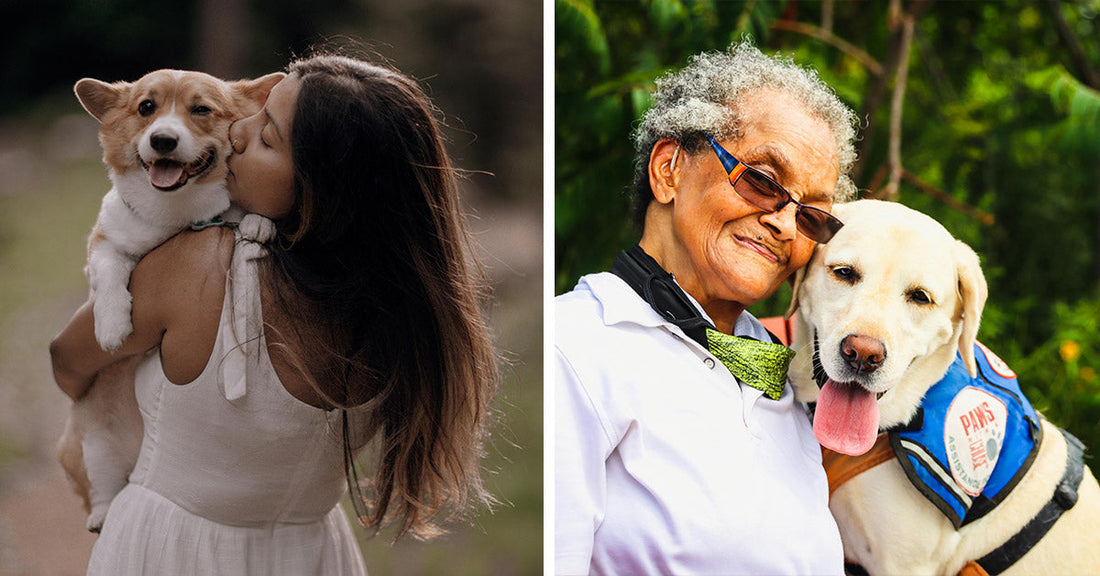How Loving a Dog Can Awaken Your Soul and Save Your Health
Matthew Russell
When your dog greets you at the door with a wagging tail and eager eyes, it’s more than affection. It’s connection. Forming a close bond with your dog is not just emotionally rewarding—it can also be spiritually transformative, physically beneficial, and mentally healing.

Dogs can mirror your stress, joy, and sadness without a single word.
Bonding Begins With Time and Intention
At the core of every strong human-canine relationship is intentional time spent together. Dogs crave interaction, structure, and attention. Training, for example, does more than teach obedience. It sharpens your dog’s mind and strengthens the trust they place in you. As the Houston SPCA explains, when your dog learns a new skill, they gain confidence—and you become their source of guidance and praise.
Activity matters too. Whether it’s a hike, a simple walk, or a session of fetch, dogs thrive when their bodies and minds are engaged. Regular play and exercise support cardiovascular health, reduce destructive behaviors, and give your pet the structure they need to feel secure. At the same time, your own well-being gets a boost. According to Wags and Whiskers Veterinary Service, shared physical activity increases mood-elevating endorphins for both dogs and their humans.

The human-dog bond is a two-way emotional exchange built through time and trust.
Pets Are Mirrors and Mentors
Bonding with a dog is not a one-way street. Dogs often reflect the emotional state of their humans. As Holistic Animal Care Mentor Ruth Hatten explains, pets may even take on our emotional or physical ailments through a phenomenon known as “mirroring.” It’s an expression of empathy, and it happens because of the deep energetic connection we share with our animals.
When you’re stressed, your dog may appear anxious. When you’re calm, they often mirror that peace.
This connection sometimes runs deeper than we expect. Theologian James Taylor, reflecting on his late dog Brick, described how their bond taught him that “God doesn’t speak to us just in words but in our experiences. Animals are a part of that experience,” he told CNN.
In moments of grief and illness, it was Brick’s steady presence that carried him through.

Daily routines create a sense of security that deepens a dog’s attachment.
Routine and Consistency Build Trust
Dogs feel safest when they know what to expect. Routine reinforces the bond by establishing a rhythm. Feeding times, walk times, and sleep schedules help dogs understand their world and develop confidence in their caregivers.
Consistency in verbal cues and training techniques also builds trust. Dogs want to please, and when expectations are clear, they’re more likely to succeed and feel secure.
Even physical affection should be thoughtful and routine. As Houston SPCA suggests, intentional cuddle time—knowing your dog’s favorite spots to scratch or stroke—makes your pet feel seen and valued.

Training your dog isn’t just obedience—it’s a language of love and confidence.
Emotional and Spiritual Healing Through Dogs
Beyond routine and play, many people describe the bond with their dog as a spiritual experience. According to CNN, some describe their pets as partners in a spiritual journey, teaching them about grace, loyalty, and even grief. Dogs can provide emotional stability during hard times, mirroring what’s unspoken and offering comfort simply by being near.
The Animal Humane Society echoes this sentiment, noting that pets can help people through trauma and improve mental health. Children who bond with dogs often gain early lessons in empathy and responsibility. Adults often feel a sense of purpose and support, especially during life’s toughest moments.

Shared physical activity with dogs strengthens emotional resilience.
The Final Gift: Facing Mortality Together
Dogs don’t live as long as humans, and losing a pet can feel like losing a family member. But even this final chapter can deepen the bond.
Scott Dill, a pastor who lost his beloved dog Socks to illness, described the experience as a religious awakening. “Through the pain of this loss, God has lovingly reminded me of the incalculable weight of his rescue,” he wrote in a personal essay.
For many, saying goodbye to a dog becomes a sacred act. Taylor’s last day with Brick included one final mischief—the dog raiding the laundry basket to hide his owner’s underwear, as if reminding them all to laugh once more.
“He died knowing he was deeply loved,” Taylor told CNN.
The bond between human and dog is not automatic. It’s built through shared moments—walks, training, cuddles, and quiet companionship. But once formed, it changes us. Physically. Emotionally. Spiritually. Dogs remind us how to love, how to be present, and how to let go. And in that bond, many of us find something sacred.

